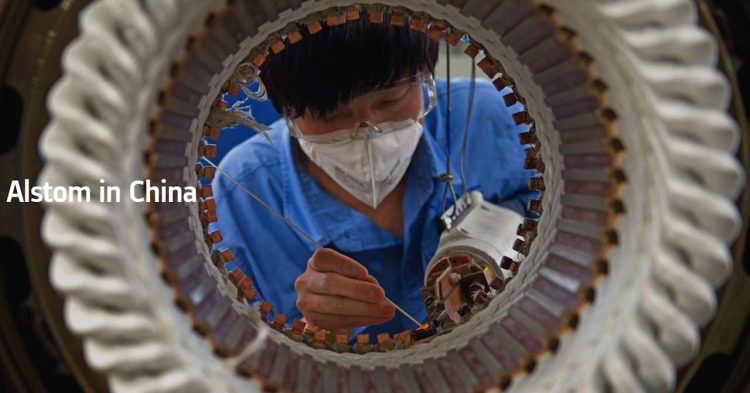Alstom's Chinese joint venture, Alstom NUG Propulsion System Co. Ltd has recently demonstrated a train in China powered by a new generation of silicon carbide and a permanent magnet motor propulsion system.
The train was demonstrated with passengers on Line 7 in Chengdu and was the first in China to combine a silicon carbide traction converter with a permanent magnet synchronous motor.
The new generation propulsion system combines silicon carbide power devices with high-frequency, high-junction temperature, low loss, and high-efficiency permanent magnet synchronous motors.

By using these technologies, there is a 30% reduction in traction power requirements.
During the converter's design phase, special attention was given to ensuring reliability when going to single axle control.
The design of the new converter took into account the need to make maintenance operations more convenient.
It is also lightweight, has a significant reduction in noise index, environmentally friendly, reliable, and cost-effective.
Alstom is addressing the need for green, intelligent mobility with its new Vasteras TC1500 traction chain, which has been specifically designed to accommodate full silicon carbide integration and has undergone testing in Stockholm.
The new generation of silicon carbide and permanent magnet motor traction system as used in the Chengdu demonstration train features:
- a high frequency, miniaturised, and low-loss axis-controlled full silicon carbide power inverter module;
- a high-efficiency permanent magnet synchronous traction motor;
- a new generation of highly-reliable control units and new digital gate drivers;
- sensorless speed control technology for permanent magnet motors;
- a more energy-efficient and noise-reducing cooling system.
Ming Geng, Managing Director of Alstom China, said “Thanks to the recognition and trust of Chengdu Metro, the success of this project represents a new milestone in Alstom's development in China. In the future, we will work with ANP to continuously track the operation of the first silicon carbide permanent magnet motor demonstration project, innovate new technologies and processes to save energy and reduce consumption.”
This looks awesome. Hope it works! Let’s come back in a year with a progress report – should help with a general move towards railway electrification, including the UK
Alas, the costs involved in our new electrification schemes are down to civils more than anything.